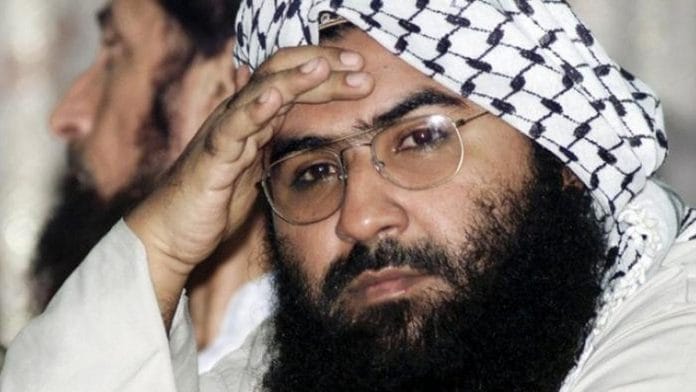Thank you dear subscribers, we are overwhelmed with your response.
Your Turn is a unique section from ThePrint featuring points of view from its subscribers. If you are a subscriber, have a point of view, please send it to us. If not, do subscribe here: https://theprint.in/subscribe/
A few days back I was watching the web series “The IC 814: The Kandahar Hijack” on Netflix. The hijacking incident which happened twenty five years ago in 1999, exposed India’s vulnerability, inept handling of the crisis and the inability to take a tough stand against international terrorism. The Government had to release 3 dreaded terrorists viz, Ahmad Omar Saeed Shaikh, Masood Azhar and Musthaq Ahmed Zargar in exchange for 155 passengers and crew held as hostages. The world watched the awkward sight of the then Foreign Minister late Mr. Jaswanth Singh personally escorting the three terrorists to freedom.
The then Prime Minister Late Atal Bihari Vajpayee who was heading a coalition government had to navigate through the pulls and pressures of the coalition and take a please-all decision to release the terrorists. His statement after the Kargil war that his Government would not bow down before any terrorism sounded hollow after the release of these terrorists.
India paid a heavy price for the release of the terrorists in the ensuing years. Masood Azhar established Jaish-e Mohammed and continued his aggression against India. He and his brother Rauf Asgar were involved in master-minding numerous attacks against India including the Parliament attack in 2001 and the Pulwama attack in 2019 leading to martyrdom of several security forces.
This is not the first time that India released captured terrorists languishing in jails. Five dreaded Kashmiri terrorists were released in 1989 in exchange for Ms. Rubaiya daughter of the then Home Minister Mufti Mohammed Sayeed and again in 1993, forty terrorists were given safe passage from the Hazratbal siege.
25 years down the line there had been a sea change in India’s status. From a meek and self-doubting country it grew into a Global force to reckon with. The Pulwama attack by Pakistan was avenged within 12 days on 26th February 2019. Unlike the earlier times, where any act of self assertion by India was criticized by countries across the globe, this time, global powers like the USA, Russia, France etc, condemned the brutal Pulwama attack by Pakistan and extended support to India in the fight against terrorism.
When UK, US and other Islamic nations shunned her, India came forward and offered political asylum to the former Prime Minister of Bangladesh Shaikh Hasina Begum. This is an example of India’s self determination and confident stance in taking decisions on its own without minding the consequences in the international arena.
The recent initiation of peace talks and visit to the war-torn Ukraine by the Prime Minister signifies the growing global stature of India as a peacemaker. Russia even indicated that India, China and Brazil only can mediate peace talks in its current war against Ukraine. India’s diplomatic efforts to bring both the warring nations to the negotiating table are applauded by the world leaders. When the nations across the globe took sides in the war India’s neutral stance resulted in both the warring factions seeking India’s intervention in resolving the conflict.
From pledging gold to the Bank of England in 1990-91 to manage the foreign exchange crisis, to being the 5th largest economy in the world, India has come a long way. It is poised to be the 3rd largest economy in the world in the next 10 to 15 years as projected by the IMF. When developed countries like UK, Germany, Japan, Canada, New Zealand etc are staring at recession, India is one of the few countries where sustained economic growth is projected.
The other notable achievements include the digitalization revolution. It now ranks as the third largest country in the world aggregate wise. The digital transactions for the F.Y,2023-24 touched a stunning 164 billion payments across India. The penetration was so extensive that even the illiterate, semi-literate street vendors, flower sellers, hawkers etc. display QR codes at their stalls to receive payments digitally without insisting on cash payment.
Chandrayaan-3 is one of the biggest success stories of India’s space exploration projects when the spacecraft Vikram landed on the Moon’s south pole on 23rd August 2023 making India the first country to achieve this feat. India was the 4th country to join the elite club of countries to achieve soft landing on the moon.
India’s efforts in alleviating poverty were applauded by the United Nations. The MPI released by UNDP and the University of Oxford reveals that 415 million people came out of poverty in 15 years from 2005-06 to 2020-21.
However, we are still fighting several issues internally, like unemployment, corruption, inequitable distribution of wealth, religious intolerance, populist freebies offered by political parties, atrocities against women, growing alienation of the middle class and minorities against government policies etc.
These are required to be addressed on an urgent basis.
These pieces are being published as they have been received – they have not been edited/fact-checked by ThePrint


